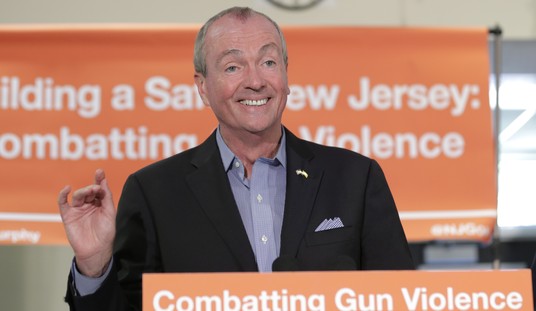Democrats and Republicans tend to fight over a lot (in public, at least) but one thing both parties favor is regulating Facebook.
U.S. Senator Kamala Harris is the latest politician to support some kind of federal social media rules. The California Democrat and presidential candidate told CNN’s State of the Union she believes Facebook is a monopoly which needs the heavy hammer of government to smash the private company to bits.
HARRIS: I think that Facebook has experienced massive growth and has prioritized its growth over the best interests of its consumers, especially on the issue of privacy.
There is no question in my mind that there needs to be serious regulation, and that that has not been happening. There needs to be more oversight. That has not been happening.
My — especially during my years as attorney general of California, one of my greatest areas of focus on this issue has been on consumer privacy. They have not been adequately informing consumers about where they are relinquishing their privacy.
TAPPER: So, they’re — they haven’t been a great corporate model, but does that mean… HARRIS: But it’s not just that they haven’t been a great corporate model. They…
TAPPER: Do you think they should be broken up, is my question.
HARRIS: Yes, I think we have to seriously take a look at that, yes.
I mean, when you look at the issue, they’re essentially a utility. Like, there are very few people that can actually get by and be involved in their communities or society or in whatever their profession without somehow, somewhere using Facebook.
There — it’s very difficult for people to be engaged in any level of commerce without — so, we have to recognize it for what it is. It is essentially a utility that has gone unregulated. And as far as I’m concerned, that’s got to stop.
One wonders if Harris feels the same about Backpage.com and the ability for people to use it for commerce.
Harris’ comments are a little over a month after U.S. Senator Ted Cruz hosted a subcommittee hearing called “Stifling Free Speech: Technological Censorship and the Public Discourse.” The Texas Republican’s problems with Facebook trend more towards both real and perceived notions of censorship.
Free speech is foundational to our Constitution. The First Amendment in the Bill of Rights begins by protecting our rights to free speech. Our democratic processes depend upon robust free speech. Speech with which we agree, and speech with which we disagree–the marketplace of ideas…
In particular, what makes the threat of political censorship so problematic is the lack of transparency. The invisibility. The ability for a handful of giant tech companies to decide if a particular speaker is disfavored. That he or she may speak, and their words simply fade into the ether. That nobody hears what they say. And that nobody knows that no one hears what they say. Not only does big tech have the power to silence voices–with which they disagree–but big tech likewise has the power to collate a person’s feed, so that they only receive news that comports with their own political agenda.
One wonders if Cruz feels the same about bakers who refuse to make cakes for a specific kind of couple.
What’s interesting is Facebook’s demographic trends older. Statista.com reported in January 2018 over 50% of Facebook’s users were over the age of 35. Only 17% were under the age of 24. Bob Sturm from Sportsradio 1310 The Ticket in Dallas recounted the growing unpopularity of Facebook with younger Americans in February by saying only one or two Liberty University students admitted to using Facebook. The students were in a class of 100 he was giving a guest lecture to at the time.
The popularity of privacy-based social media has been growing for some time. Pew Research reported in 2013 there were plenty of teens who made sure select friends knew what they were doing – instead of posting things publicly. The report also noted teens were annoyed by the number of adults on Facebook.
Facebook is still the most popular social media app in the world, according to Statista. It should be noted Facebook Messenger and WhatsApp – two apps where users have more control of who sees what – have more accounts combined. WeChat – a Chinese-based messaging app – is also popular in China. SnapChat – another social media platform where users control who sees what – is also used with teens.
There’s no reason to start regulating Facebook because its user base will slowly start dying off or leaving for other platforms. Facebook’s decision to deplatform people like Alex Jones and Louis Farrakhan is not the way to go because more voices – even those who are kooks – are better than fewer. The concerns about Facebook’s privacy is also warranted and it’s great there are media outlets who have reported about privacy issues.
Users still have the ultimate control: they can leave the social media platform and not return. Government involvement isn’t needed.








Join the conversation as a VIP Member